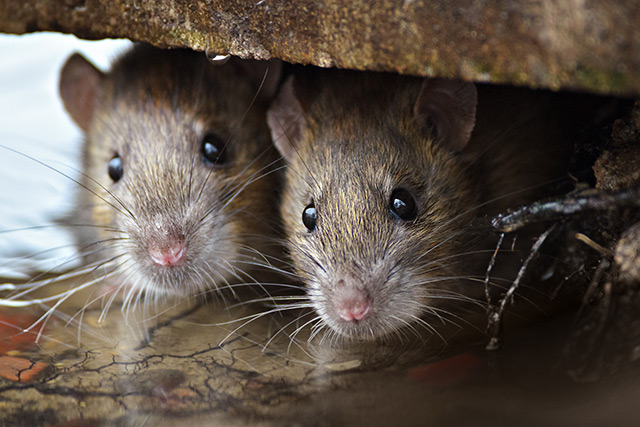Scientists study the unique reproductive system of the African pouched rat, a clever animal used to detect land mines and tuberculosis
05/19/2019 / By Edsel Cook

A species of big rat from Africa possesses an incredibly sensitive nose that can sniff out the presence of deadly tuberculosis and equally dangerous landmines. Researchers recently uncovered more information about the reproductive habits of these useful animals, which can help them breed the notoriously finicky rodents in captivity.
The African giant pouched rat (Cricetomys gambianus) belongs to a genus of rats found in the African countries south of the Sahara desert. These rodents can grow to around the length of a small cat. Despite their considerable size, they remain small enough to avoid triggering landmines.
Thanks to their powerful sense of smell, the giant pouched rats can be trained to serve as a smaller and cheaper substitute for dogs or robotic gas sensors. The rats can pick up the scent of explosives used in most landmines, as well as the signs of tuberculosis in a sick person.
Despite these life-saving uses, researchers knew little about the biology and social behavior of these rats. Furthermore, while it is easy to tame and train wild animals, they are also challenging to breed. (Related: New artificial “robot nose” could soon replace dogs for sniffing out narcotics and explosives.)
The unique reproductive system of the giant pouched rat
Researchers from Cornell University undertook the task of studying the reproductive system of the giant pouched rat. They quickly discovered that the cat-sized rodents display reproductive behavior and characteristics that are not seen in other animals.
“We wanted to understand their reproductive behaviors and olfactory capabilities, because they have been so important in humanitarian work,” explained Cornell researcher Alex Ophir. He served as one of the co-authors of the study alongside Angela Freeman and Michael Sheehan. They published their findings in the journal Animal Behaviour.
Ophir and his colleagues determined that female pouched rats take a very long time to reach sexual maturity. Therefore, male rats need to identify if an adult female was “patent” or capable of sexual reproduction before mating.
In their experiment, the researchers exposed both male and female pouched rats to the scents of the opposite gender. They wanted to find out if the males preferred those females over non-patent females. To their surprise, they found that the anogenital distance (AGD) of male rats influenced the animals’ pick of mates.
The anogenital distance of male giant pouched rats affects their choice of mates
The distance from the anus to the base of the penis, the anogenital distance serves as an indirect marker of masculinization. The animal’s level of exposure to sex hormones during its development in the uterus determines AGD.
Male animals with greater AGD can tell which females are ready for reproduction and which ones are not yet sexually mature. Furthermore, males prefer the scent of patent females. In contrast, males with shorter AGDs do not particularly prefer patent females over sexually immature females, even though doing so reduces the chances of successful reproduction.
Likewise, patent female rats prefer the scent of masculinized males. Non-patent females are nowhere as picky regarding their mates.
Freeman, the first author of the study, pointed out that this was the first time longer AGD appeared to be connected to communication and signal processing in animals. Her co-author Ophir added that the ability to figure out viable reproductive partners from non-viable ones after taking just one whiff could affect the reproductive success of the pouched rats in the wild.
“This kind of patency change is different from basically every other rodent that’s been studied up until this point,” remarked Freeman. “Further studies to understand this process will help explain why breeding pouched rats is so difficult in captivity.”
Sources include:
Tagged Under: African pouched rat, animal behavior, animals, anogenital distance, biology, breakthrough, landmines, Rats, reproductive system, rodents, scent detection, Sex hormones, sexual maturity, tuberculosis, weird science
RECENT NEWS & ARTICLES
COPYRIGHT © 2017 RESEARCH NEWS



















